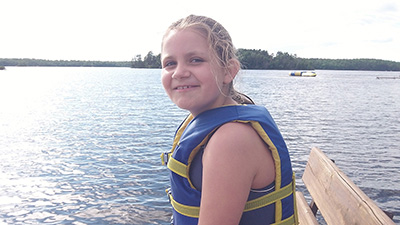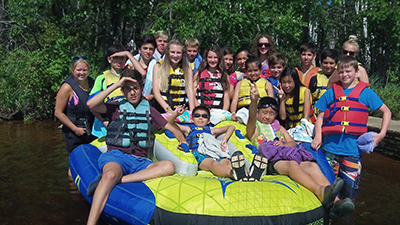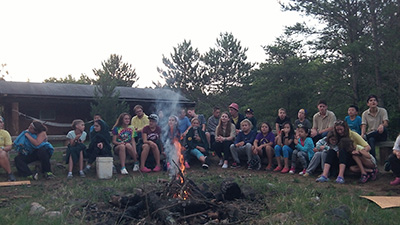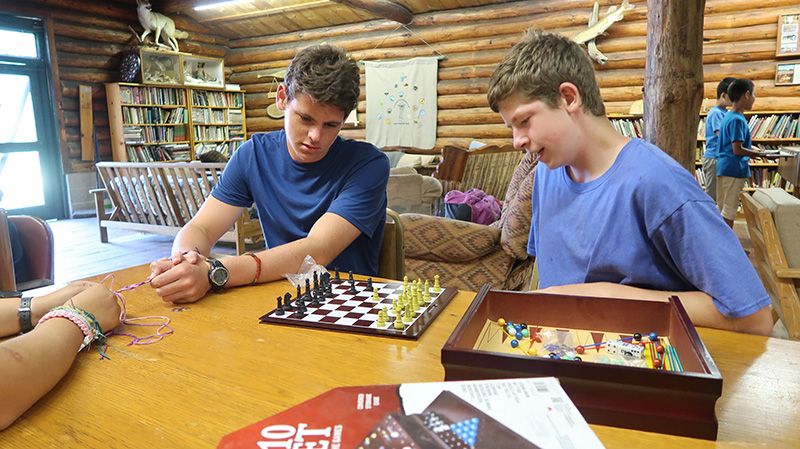Staying Connected to your child
Keeping in touch with your child begins even before she gets on the bus for camp and should continue the whole time that he or she is at camp. Keeping in touch with your camper is more than just sending cards, letters, and packages, but also what you say and how you respond to what your child tells you about camp life. The letters you write and the packages that you send will be your primary links to camp and your child, and you should make them caring, effective, upbeat, and fun.
Off to Camp
Sending your child to camp for the first time can provoke a range of parental emotions. You will probably feel proud, excited, and happy for your child embarking on a new experience. You may feel a bit of relief at the thought of a few weeks of freedom, and you may also feel guilty for feeling that way. You may worry that your child isn't ready for camp, or you may feel sad that your child is getting older and less dependent on you. You may feel all, some, or none of these emotions. Remember that it is normal to have any of these feelings, and it is also normal to have none of them.
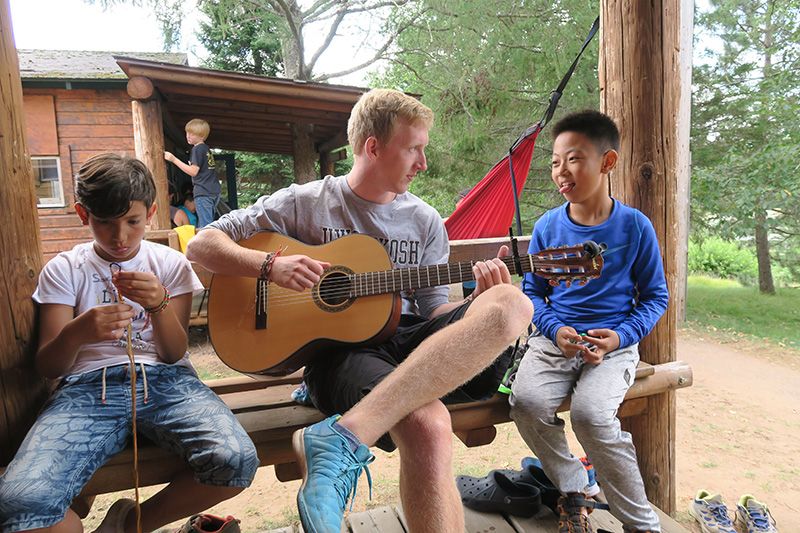
What Your Child May Feel
In the weeks before the beginning of camp, your child may also be experiencing many emotions. She may be excited, confused, worried, or even bewildered. Make sure that you recognize that it is very reasonable for a child to be both excited and worried at the same time. To your child, camp is a strange place, and while everyone says that it will be a lot of fun, it does not have the same stability and comfort of home. Camp is like any other new experience, and your child will likely feel both thrilled and a little scared.
Homesickness
You don't have to be a camper, or a child to suffer from homesickness. When anyone is in a strange, new place, even if it is exciting and fun, it is normal to miss home. Separation anxiety is a normal part of childhood. It is developmentally appropriate, is evidence of the loving, trusting relationship you have built with your child. Because your child loves and trusts you, separation can be scary. A camper knows that separation is followed by reunion, but emotionally, it can be difficult to accept. When in the midst of adjusting to living with new people in a new environment, children can get overwhelmed. Even for children who enjoy new adventures and love sleepovers with friends and relatives, a short bout of homesickness is a common reaction.
It is important that you don't measure your success as a parent by your child's adjustment to camp. Even if your child has a difficult time adjusting to camp, it does not mean that you have failed to create an independent child. It may be difficult to understand how hard your child finds the first few days at camp. At times, it's almost as if your child believes that he or she will never see you again. Put your child's reaction into context. She may not be looking for a logical response from you, rather, what she wants is comfort and reassurance. Remember that even adults don't always act logically when they are very anxious. Homesickness is not about your child loving or trusting you enough, or about her independence or willingness to take risks. Homesickness is a temporary situation that she can over come with the support of adults. And when a child overcomes homesickness, it is an enormous boost to both self-confidence and self esteem.
Why Isn't My Child Crying?
It is just as important not to be upset or worry if your child sails through camp with out any homesickness, or even a backward glance. This does not mean that you failed to develop a strong attachment, and it also does not mean that he or she doesn't love you enough to care about not being at home. If your child handles separation well, you should enjoy it. Remember how excited they will be to see you upon their return.
 Who Will Cry?
Who Will Cry?
Separation is about change, and will affect some children more than others. You probably already know if your child adapts to change well, or is more likely to suffer a strong case of homesickness. Ask yourself about how your child reacts to new situations and new things. It is not that a shy, more reluctant child will not adjust to camp, it just may take a little more patience and reassurance to adapt to this change. Some children will adjust faster than others. This is not something to worry about. Knowing how your child adjusts to change can help you to be realistic about how the first part of camp will be like, so that you can be ready to help your child successfully cope with the adjustment to camp.
Don't be afraid of crying. Camp directors agree that it's often easier to deal with a child that is upfront about being homesick and cries than the child that is homesick and withdrawn. While no parent wants to hear that their child is crying, take comfort that your child is willing to share his problems with other adults and is asking for help.
Sometimes a child will enter camp and have no problems for the first few days, then be hit by a bout of homesickness. It may be that the novelty of camp has worn off, and the child can now focus on separation. Though this can be frustrating, these bouts usually pass quickly with the patience and reassurance of both staff and parents.
Visiting Day
It is not unusual for a child to have problems with homesickness when you visit them. However, as your child gets back to the daily routines and excitement of camp, this anxiety will pass. If your camp allows phone calls, your child may feel the same homesickness and separation after calls. If this happens, it may be better to talk to your child on the phone less frequently, or stop talking on the phone altogether. This is why many camps do not allow phone calls. Whatever you choose, talk to your child about your decision so that
The Preemptive Strike Against Homesickness
Just as you discuss other camp issues with your child, you should be up front about homesickness. Your child should understand that feeling homesick is a normal emotion, and that even if he is homesick, he can still have a good time. You should remind your child that you are confident that he will enjoy the camp experience even if he misses you. Encourage your child to share your emotions with his counselors and the camp director.
However, as you are talking about homesickness with your child, make sure that you do not act as if you expect a problem. If you over-prepare your child, you may undermine their self confidence. Talking to your child about homesickness is a fine line that you must walk carefully.
There are some things that you can do before your camper leaves home to help them cope with homesickness. You can role play situations with your child that he or she may encounter while at camp. Make sure that in addition to putting a letter in your child's luggage, send a few letters to camp a few days before your child leaves so that she will find mail when she arrives. Try to write every day so that there will be a steady stream of cards and letters at each mail call. If you have any reason to suspect that your child will have difficulty adjusting, talk to the director before your child arrives at camp. This way, the director can keep a special eye out for any sign of problems.
Your Child is Homesick: Now What?
Even though you may have expected it, it's still upsetting when you get a homesick letter from your child telling you that he's having a horrible time and that he wants to come home immediately. While you may want to rush to the rescue as quickly as possible, stop yourself. The best thing that you can do for your child is to call the camp director. Your call may be the first clue to the director that your child is having problems. This is not because the director is uninvolved. Most likely, the case is that your child is not as intensely homesick as the letter suggests, your child is masking his homesickness, or that the bunk counselors have been able to cope without involving the director. If you have only gotten one homesick letter, it is quite possible that the intense emotions that prompted the letter have passed.
Tell the director about your letter and concerns, and ask him to investigate the situation and get back to you. A good director will not whitewash the situation, but will put it into perspective. An experienced director will know what is typical homesickness and what is not. The director should tell you what they are doing to ease the situation for your child at camp. Usually, the plan involves keeping the child busy and involved in the camp program so that they are too busy to focus on being homesick.
The message you send to your child when he is homesick should be clear. Let him know that you are sorry that he is sad, but you believe that he will enjoy the experience. Let your child know that you are proud of them and you want him to stay at camp and that everyone at camp wants to help him succeed.
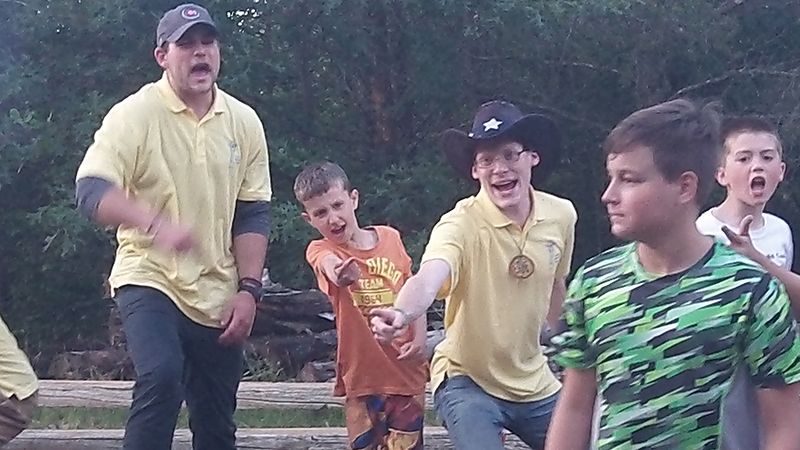 The Game Plan
The Game Plan
Parents need to be in agreement that they will stay with their decision that their child will complete their stay at camp. The first thing that you must do is to trust the judgment of the director that can see first hand what is happening. You have to believe that the director will put the situation into perspective based on years of experience. Even if your camp has a 'no phone' rule, the director may offer you the opportunity to speak with your child if the director believes that it would be beneficial. However, if the rule is no telephone calls, you should not insist on talking to your child after receiving a sad letter. Your child may think that if the no telephone policy can change, then the whole idea of camp should change as well. If you do choose to speak on the telephone with your child, you must remain calm, even if your child cries. There are some dos and don'ts to keep in mind.
|
Do's
|
Don'ts
|
If you can't have a telephone conversation, then you must convey your thoughts in a letter. Explain that you are in touch with the camp staff and that you are working with them to help her to succeed and that you will be checking with the camp director regularly to hear about her progress. You may also want to try to put the situation in perspective. Try to get her to see how short a time period you are talking about. Some children may also find it helpful to keep a journal, so that she can write down how she is feeling and see the progress that she is making.
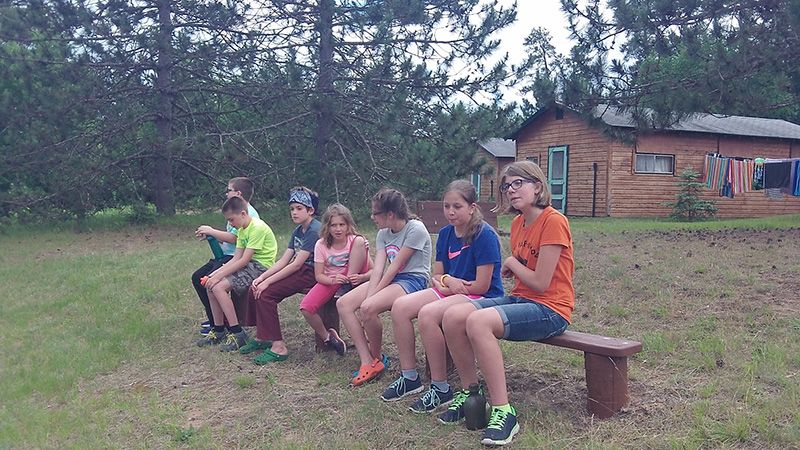
When To Call It Quits
Is it ever right to say that it isn't working and bring your child home? Sure, but you must make this decision with a great deal of thought and awareness of the long-term consequences. Campers who come home before the end of their stay often feel like failures. However, sometimes, even with the best of intentions and efforts on the parts of the parents and staff, a child is just not ready for camp or it's just not a good fit. If, after a real trial (a week is not to long), and the best efforts between home and camp your child is clearly not adjusting, it's time to bring the camper home.
If you make the decision to bring your child home, hopefully in agreement with the camp director, then you need to support your child fully through what he may think is a failure. Don't go through an intense reevaluation the day he comes home, but after a few days, you should sort out what went right and what went wrong with the experience. Help your child to understand that even though the camp experience was disappointing, he is not a failure because he came home. Let your child know that you may reconsider another sleepaway camp program at another time because you have confidence in him.
Keeping In Touch
Cards, letters, and care packages help children to adjust to camp. They are bridges between home and camp, as well as a means of reaching out and connecting to bunkmates. Writing the first camp letters are tricky. You want to let your child know that you love and miss her, but you don't want to overdo it so that she is overwhelmed with guilt and homesickness. You want to tell her what is happening at home, but you don't want to make it sound like so much fun that she wishes that she were there instead of at camp.
Like any good letter writer, you should first ask about what's happening there. Since you should have a good idea about what camp is about from your pre-camp research, you can ask specific questions like about the waterfront, meals, or other activities. You can talk to your child about life at home. Look for anecdotes about friends, the neighborhood and the town to share. Your letters don't have to be long. In this case, quantity is better than quality. There are some parent proven tips that you can use when writing your letters:
- Alternate your letters with funny greeting cards.
- Include Jokes, Riddles, Puzzles, or News Clippings.
- Limit Criticism, Save any negative discussion for when your child gets home, it's hard to have meaningful dialog on paper.
- Pre-Address Envelopes, It will make your child more likely to write home.
- Make Writing Fun, Include fun stationery, pens, and stickers.
- No Grammar or Spell Check, Don't comment on your child's writing, spelling, or grammar in letters home.
- Be Realistic, Understand that your camper may not write much, well, or often. Many children are so excited about all of the activities at camp that they just don't take time to write.
- Stay in Touch, Continue writing to your child, even if you get one line or no letters in return.
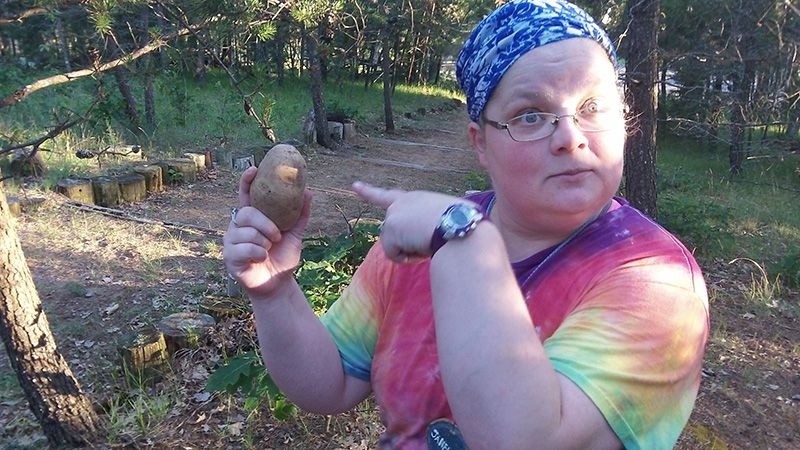 When the News is Bad
When the News is Bad
Sometimes, you will have unfortunate news that you need to share with your camper. Before you write a letter detailing the situation, consider if you must share the information at this point, or if it can wait until your camper returns home. If there has been an accident in town, if you or your partner has lost your job, or if the family pet is ill, you may want to wait to discuss these issues face to face. However, if it is an emergency, such as a close family member has died or is very ill and you believe your child needs to know, call and talk it over with the director first. This way, you can make sure that there is an adult with your camper who can give him emotional support when he receives the news. You'll also want to discuss with the director what you want to do next. Do you want your child to come home permanently or temporarily? Many camps will let children go home for an emergency and then return. It may be the best thing for your child to come home and then return to camp. The camp director can help you to assess your child's emotional health and offer support if she returns to the program.
Care Packages
Make sure that you know what is permitted at the camp before sending a package. Some camps strictly enforce a no-food rule and have their campers open their packages in front of a counselor. Camps do this in order to keep critters out of living spaces. Food in cabins can attract ants, bees, mice, raccoons, and even bears in some areas. If your camp does permit food, be sure to send a tightly sealing container for your child to store it in.
Good care packages include comic books, books, stickers, crazy hats, nail polish, and generally any toy you might find as a party favor. You might send clothing or decorations to help celebrate the Fourth of July. Your camper might request something for a talent night or other all camp event, or he might need batteries or toiletries. Though some of these things can be purchased in the camp store, for most campers, getting a care package is just more fun.
Telephone Connections
Many camps have a no telephone call rule. Others may permit calls after the first week or ten days, others may allow phone calls for a child's birthday or a parent's birthday, and some may allow unlimited phone calls. You and your camper must understand clearly what the rules are before she leaves for camp. This will make it easier for your camper because the expectations are clear.
The problem with telephone calls home is that parents are confronted with the emotion of the moment, and it can be harder to put into context than a letter. With a telephone call you only get the emotion that the camper is feeling at that moment, and some of that might be a reaction from hearing a parent's voice. Also, some children aren't great conversationalists, so phone discussions might be limited. If telephone calls are permitted, there are three tips that you can follow to make them reassuring to your camper and productive to you.
1) Keep it short , Three minutes is enough time to touch base with your child and ask what they would like you to bring for visiting day. Most camps have a time limit, and you should respect it.
2) Keep it light, Its find to say that you love and miss your child, but you don't want to overdo it and touch off a bout of homesickness. Keep the conversation light, just like you would in a letter.
3) No pressure , Don't use the telephone to remind your child of your expectations about camp performance. If you have questions about your campers progress, improvement, or goals, ask the director, not your child.
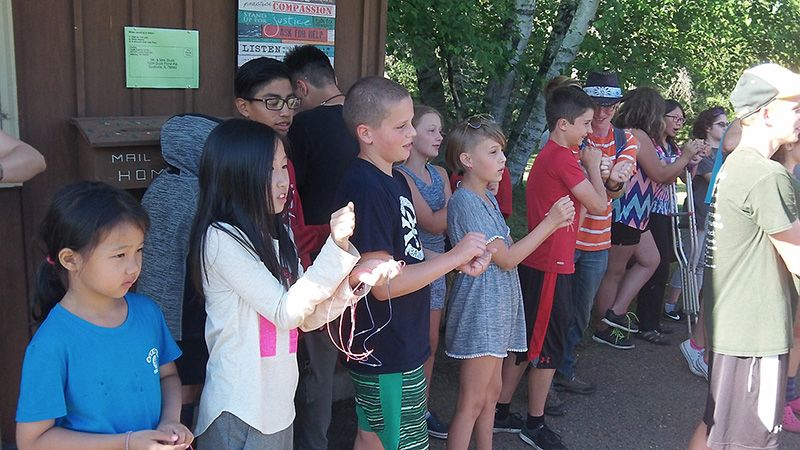 Birthdays at a Distance
Birthdays at a Distance- Visiting Day
Families are sometimes surprised that emotions are rampant on Visiting Day and camp and can run the full gamut from good to bad. Though it is an exciting day of reunion, it can also be a return of homesickness. While it can be an opportunity to show off the many skills acquired, it can be disappointing if everything does not go as planned. Especially for first time campers and parents, Visiting Day is an important milestone in the camp experience. - Plan Ahead
When you send in your deposit for camp you should also put down a deposit for lodging for Visiting Day if you will need it. Local hotels surrounding summer camps fill up fast. If you live within driving distance, Get up and moving early. Children are on overdrive from the moment they wake up on Visiting Day. Arrive early so that when your child scans the crowds, he will see a familiar face.
What's Happening
Your child's camp will notify you about the parent visitations. Some camps permit parents to take their child off site, while others insist that they spend the day at camp. You'll want to know what is the usual procedure for your camp. Many camps have parents follow campers through a usual day allowing them to observe and interact in the various programs. Being at camp allows an opportunity to discuss your child's progress with the counselor and activity specialist. You also need to schedule some quiet one on one time with your camper before you leave. Take a walk or seek out a quiet spot and encourage your child to talk honestly and frankly about camp. Tell your child that she may feel homesick after visiting day, and that it's normal, and encourage her to share her feelings with counselors and friends.
What if there is a problem?
If your child complains about a counselor, bunkmate, or even continuing homesickness, you want to empower your child to believe that she can handle the problem and find a solution. If your child has a problem, you should:
- Listen carefully and respectfully to her complaint.
- Offer comfort and acceptance of any of the emotions she may feel.
- Provide a clear message that coming home is not the answer.
- Encourage her to believe that she can problem solve any issue, and that it is a sign of maturity to ask for help.
- Remind her that the camp staff is there to assist. Even if the problem is with her own counselor, point out that there are others on staff whose job it is to listen and help.
If it is necessary, offer to accompany your child to discuss the problem with the director, but let your child do the talking as much as possible. Follow up with a phone call to the director after you get home. However, if you believe that it is a serious problem that must be addressed immediately, speak to the director before you leave, then arrange a telephone appointment to speak to the director about the issue later.
 Food, Glorious Food
Food, Glorious Food
Most camps permit you to bring food on Visiting Day, but many insist that the food be consumed during the day and any leftovers be removed from the bunk. Ask about the camp's policy on food. If your camp is affiliated with a religion, ask if there are any prohibitions on food brought into the camp. Some strictly kosher programs do not want any food, even packaged food that is marked kosher, brought into the camp.
Medical Issues
The medical problems at camp are usually easily treatable. Though the staff will be prepared in case of an emergency, most visits to the Health Center require little or no treatment. In fact, many of the camper's minor illnesses are just a bad case of homesickness. Experienced camp medical staff are used to helping children cope with homesickness and campers who are just tired from the heightened level of activity at camp.
If the camp calls to tell you that your child is sick, you want to know what is wrong, what is being done, and under what circumstances a specialist will be called. Call back, frequently if necessary to check on your child's progress. It may be difficult for you and your child to deal with an unfamiliar health professional. Remember that one of the reasons that you selected the camp is because you trusted the staff and their judgment. If your child breaks a bone during camp, you may want to ask that the x-rays be sent to your own doctor while your child is still at camp. If your doctor has any concerns, you can always bring your child home for treatment. Many families have brought their children home for treatment and then sent them back to complete the camp season.
Coming Home
When the camp season is over, the same child who shed tears for leaving home may cry when leaving camp. The reentry home can be hectic, but there are four things that you should do when your child arrives home to make things easier:
1) Check for lice, If you discover this before your child gets back into the house, cleaning is much easier and involves fewer items. Though the camp health staff will have checked for head lice, it's better to be safe than sorry.
2) Sort and toss, Go through camp clothes, discard those that are beyond hope to save yourself washing an item that is irreparable or badly stained.
3) Check for all equipment, Check the packing list to make sure that all important items returned home. If not, call and ask the camp to check for the lost items.
4) Store in a safe place, Store the trunk and the equipment that your child needs for camp in the same place. Write notes to remind you about what your child needed, and what wasn't used for packing next year.
Your child will be tired, likely in need of a bath, excited, missing her camp friends, eager to see her friends from home, and hungry. While you want to talk about camp with your child, remember that it may be hard for them to sort out in the beginning. Some tips are:
- Give your child some space and time to sort through the experience and then talk about it.
- Avoid, if possible, leaving immediately for vacation. Try to give your child a day or two at home
- Encourage her to keep in touch with camp friends.
- Encourage your child to make a scrapbook of the camp experience to preserve the camp memories.
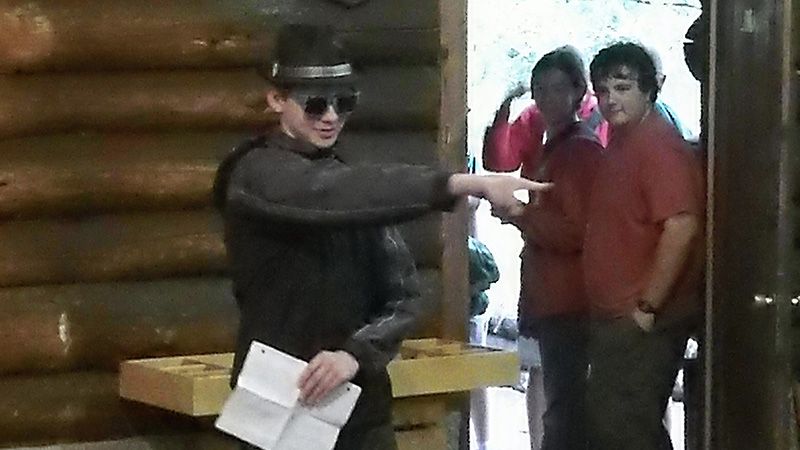
Planning Ahead For Next Season
Parents are now sometimes surprised that their once eager camper begins to question their return to camp around January. Even if the experience was absolutely terrific, the camper may remember homesickness and brief periods of unhappiness. Reassure your child that this is typical. Take out the camp scrapbook and talk about the fun times at camp. Acknowledge that though homesickness can reoccur, it passes much more quickly the second summer.

